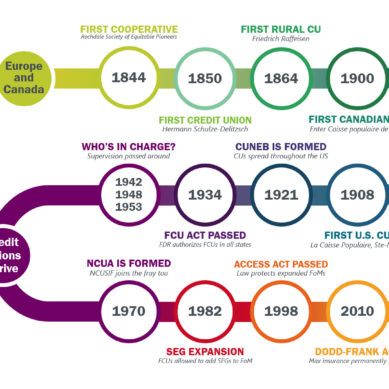For the last decade, I have been in some sort of customer-focused sales role. I started as a telemarketer selling Police Benevolent Memberships to the residents on the Southside of Chicago in a strip mall office. I have been called everything under the sun including, but not limited to, my name. If you are wondering if I ever made a sale the answer is yes. In fact, I was pretty good at it. (This is my application to the bragging camp).
Thinking back to those days in that smoke-filled room, I remember the phones ringing non-stop, people quitting in the background, and people crying because they couldn’t handle the pressure of other people yelling at them. Here I was, young and naïve, pressing the beige corded phone to my ear as hard as I could to barely make out a few words the random stranger who just popped up on the auto-dialer screaming “HELLO” for the second or third time before I was connected to them. They were furious at that point and my chance of getting any sort of donation was probably less than 5%, but it wasn’t zero. It wasn’t zero because I knew how to make a connection. I knew how to have empathy.
Now, as a Business Development Officer for our credit union, I apply these principles to my day-to-day interactions within our local community.
Listed below are some foundational principles and traits that can be utilized daily. The great part about them is that even if someone is not a “natural salesperson” most of us are empathetic and genuinely like helping people. After all, people helping people is kind of how this whole thing started, right?
Be genuine
The foundation of empathy is trust. If society dislikes anything more than a salesperson, it’s one who is not genuine. We have all worked with this kind of person before; I don’t even have to go into details.
Listen to the members and remember you are human too. You have lives outside of work, with spouses, kids, football games, birthday parties, and other things to attend when we leave our place of employment. Your members do too. Ask about them (but be genuine) and see how quickly they start to trust you.
Listening to solve, not sell
When a member comes to you, and you have started to make that empathetic connection, often they will let you know what their problem is. Now it’s simple and all you must do is listen to them.
People love to talk, and they love to talk about their problems or the great things happening in their lives. Pay attention to your daily conversations and you will see those two polarities come up more than any other topic. Once you identify their immediate problem by active listening, you can provide a unique solution based on their feedback and your expert knowledge.
Product knowledge, not know-it-all
Knowledge stems from the Greek word, Gnosis, meaning “knowing through observation or experiences.” One thing I learned early on in sales is that if you don’t know the answer to the person’s question, answer truthfully and tell them you don’t know, but you are going to find out. School taught us the idea that we have to know all the answers to all the problems presented to us or we lose points—and for real-life applications, that is simply not true. It’s okay to say you don’t know and seek out the answer.
This enforces that previous foundation, trust. Get another team member involved who is more knowledgeable than you and now you just reinforced the trust you started with them even further by showing them not only are you down to earth and a genuine human, but your credit union has a whole team of likeminded people in their corner ready and willing to help.
Communicate
I worked for a billionaire a few years ago as his General Manager. He dressed nice and smelled nice, and the one thing I admired most about him was that despite his societal status, he could speak and connect with literally anyone. In one of our sales meetings, he said something to the management team that I have carried with me since that day, “Frustration stems from a lack of communication.”
The next time a member comes into your credit union upset at you and everyone involved from what is most likely a common and simple mistake: stop, listen, identify, and then come up with a solution that makes them feel like they are being heard. This will create a lasting positive impression that strengthens your relationship with the member base you serve.
Under promise, over-deliver
This is an adage as old as time in sales, and in today’s fast-paced world, we must be careful about our promises of capabilities. Set the tone with your members by having a discovery meeting where they can feel more comfortable discussing their needs. You can do this by hosting seminars for your members and the public, asking them to come in for a 1:1 consultation, or simply pulling them to the side where no one can hear and starting the conversation with them about where they are and where they want to go.
If your credit union cannot help them, be honest and then find resources that can help them and are within your capability. Even if it doesn’t benefit you in the short term, it will in the long term. This is a relationship and relationships take time to develop.
In summary, building an empathetic sales team at your credit union enables them to build a deeper trust with your current members, become active listeners, develop their product knowledge, efficiently communicate, and understand their holistic contribution to not only the institution but the community in which you serve. The best part about empathy is that it costs you nothing to implement, except for a little time and your credit union can directly impact someone’s life in more ways than you can imagine. We are not just here for them financially; we want to be here for them in all aspects of their journey.

























































